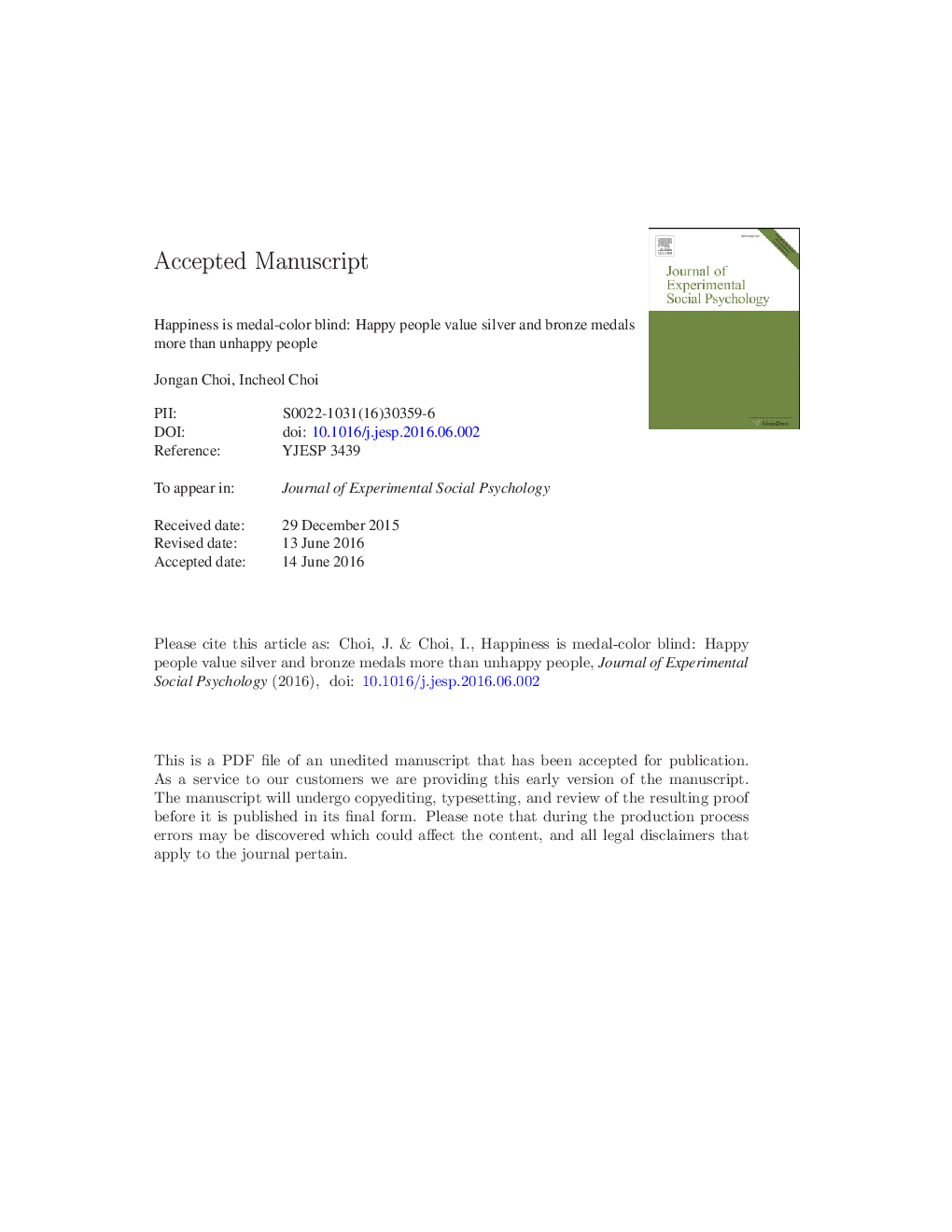| Article ID | Journal | Published Year | Pages | File Type |
|---|---|---|---|---|
| 7324363 | Journal of Experimental Social Psychology | 2017 | 23 Pages |
Abstract
The present research examined whether happy and unhappy people perceived the value of Olympic medals (i.e., Gold, Silver, and Bronze) differently. We hypothesized that, compared to unhappy people, happy people would perceive greater value for silver and bronze medals in relation to a gold medal because happy people habitually savor even small things more than unhappy people. In support of our argument, happy relative to unhappy participants preferred more the total-medal method (i.e., counting all medals, regardless of color) over the gold-first method (i.e., counting only gold medals) for the Olympic medal ranking (Study 1). In addition, happy people believed that smaller numbers of silvers and bronzes would be equal to one gold in value than unhappy people (Studies 2 and 3). Moreover, the belief about the frequency-not-intensity principle of happiness mediated the effects of happiness on the perception of the value of medals (Study 3).
Keywords
Related Topics
Life Sciences
Neuroscience
Behavioral Neuroscience
Authors
Jongan Choi, Incheol Choi,
